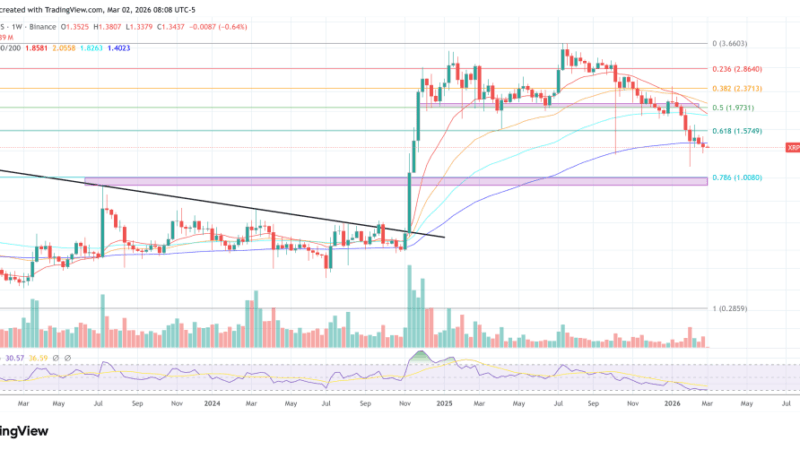SEC’s Watchful Eye on Friend.tech: A Potential Ripple-like Case?


The post SEC’s Watchful Eye on Friend.tech: A Potential Ripple-like Case? appeared first on Coinpedia Fintech News
Friend.tech, a decentralized social media platform that allows users to buy and sell “shares” of personal accounts, saw an unprecedented surge. The platform raked in over $1 million in fees within a 24-hour period, potentially grabbing the attention of SEC Chair Gary Gensler. It also made a notable change to its core asset’s name, from “Shares” to “Keys.”
The Model
Friend.tech’s model resembles a stock market. Shareholders in this virtual world can receive dividends, much like public company shareholders, while influencers can choose to share fees with buyers. But what makes this unique are the “shares” of personal accounts that users trade. As Mark Hiraide, a partner at Mitchell Silberberg & Knupp, explains, these are more than just entry tickets; they carry the potential for capital appreciation, much like traditional stocks.
The Major Concerns
While the shares allow users to privately message the accounts they invest in, providing some utility, the focus on profit expectation cannot be ignored. According to Hiraide, if these shares ever trade on a platform separate from Friend.tech, it would make them harder to distinguish from traditional securities.
Influencers at Risk?
Jesse Hynes, attorney, and founder of Seedstarter, hints at the possibility that influencers could face liability for share price fluctuations. If the shares are seen as unregistered security offerings, those who sign up to let others purchase shares might find themselves in legal hot water.
The platform’s privacy policy is not yet available, and users grant extensive permissions to Friend.tech at sign-up. The buzz surrounding these aspects might compel the SEC to step in, much like the high-profile case against Ripple.
A Strategic Name Change
In what appears to be a response to SEC concerns, Friend.tech has rebranded its core asset from “Shares’ to “Keys,’ ‘ aimed at symbolizing the unlocking of friends’ chatrooms. While the tokens on Friend.tech might not be classified as securities, the way users present them could tip the scale.
Friend.tech’s unique offering is pushing the boundaries of digital assets and raising questions about how far the definition of securities can stretch. Legal experts and regulators are watching closely, and the community is engaged in a vibrant discussion about the future of such platforms. The coming weeks may unveil whether Friend.tech is a groundbreaking social innovation or a risky game with securities laws.




